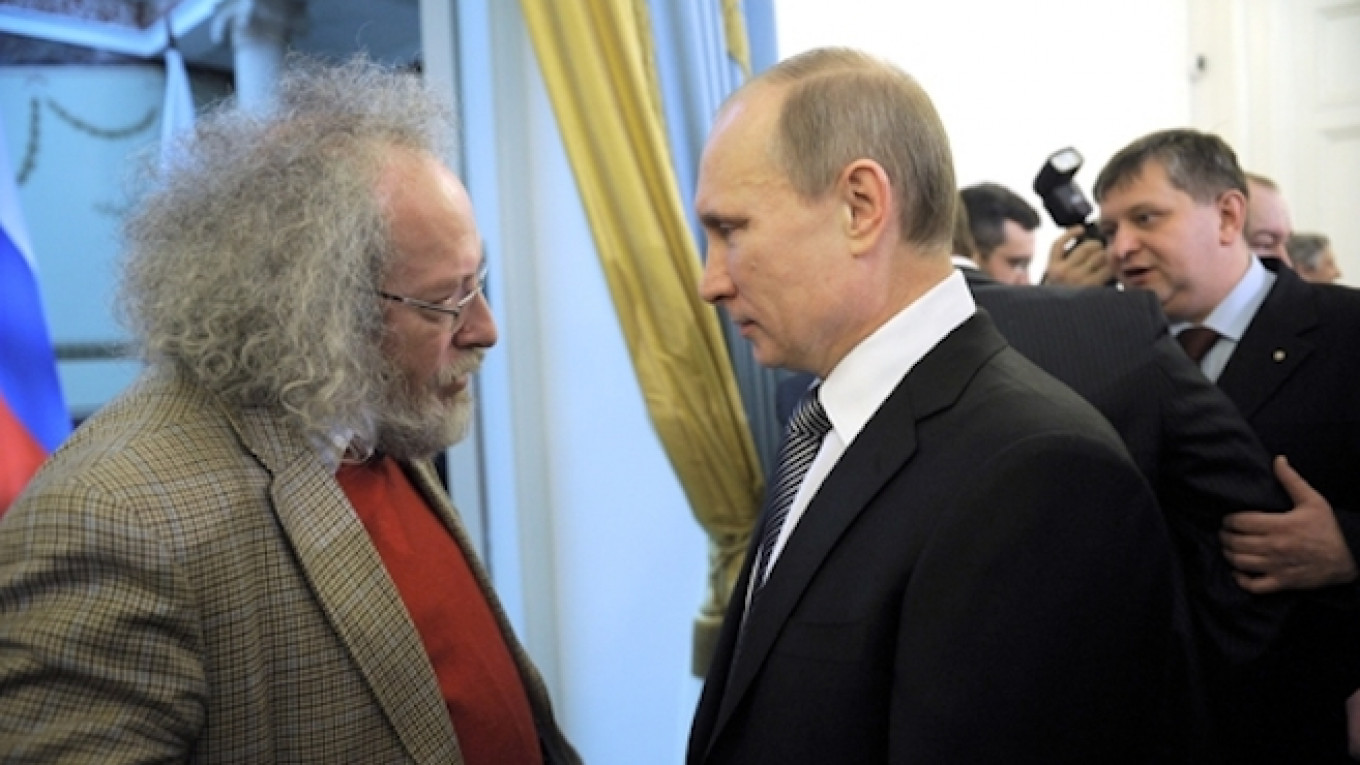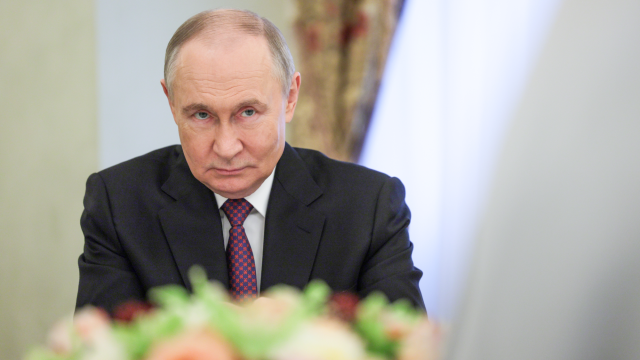A state-controlled media holding has fired an Ekho Moskvy radio journalist, citing ethical standards, and threatened to dismiss the radio station's long-standing chief editor, who has led it as one of the final strongholds of media freedom in the country.
The dismissal of Alexander Plyushchev followed a Twitter post in which the journalist commented on the drowning death this week of the 37-year-old son of Kremlin chief of staff Sergei Ivanov, referring to an incident in 2005 when Alexander Ivanov hit and killed a 68-year-old retiree with his car. Plyushchev questioned whether the "death of Ivanov's son, who ran over an old lady and sued her son-in-law, is proof of the existence of God/higher justice."
He subsequently deleted the tweet and apologized for it.
Gazprom Media, the media arm of state energy giant Gazprom that owns a 66 percent stake in Ekho Moskvy, fired Plyushchev on Thursday. The company did not specify the exact reason for Plyushchev's dismissal, saying only that he had been fired for "violating all permissible moral and ethical norms," according to a statement cited by news agency RBC. The media holding's head, Mikhail Lesin, also said the decision had to do "with morals," Forbes Russia reported.
Plyushchev had recently hosted a talk show about fighting at Donetsk Airport in eastern Ukraine, in which he interviewed journalists who have covered the crisis. The show got Ekho Moskvy a government warning for "information justifying war crimes." The transcript of the program, which aired in late October, has been pulled from the Ekho Moskvy website, and the radio station could be shut down if the government issues a second warning within a year.
Ekho Moskvy journalists said Plyushchev's firing violated their radio station's charter, which gives the editor-in-chief the sole power to dismiss editorial staff.
Editor-in-chief Alexei Venediktov, whose trademark glasses and mane of frizzy gray hair are almost as much a symbol of the radio station as its official logo, said he would ignore the Gazprom Media ruling.
"This order, as far as I am concerned, has no force," he told Ekho Moskvy in a late evening program Thursday. "Alexander Plyushchev remains a journalist of Ekho Moskvy. As to whether his programs will be broadcast: They will be broadcast."
But continued defiance puts Venediktov's own job in danger. Lesin said that continuing to resist Gazprom Media's decision would make it "quite possible" that Venediktov could also be fired, and that "lawyers would figure out" how to justify it, RBC reported.
Venediktov told news site Lenta.ru that the threat of losing his own job did not frighten him.
"I have been prepared for death since birth, and I am always prepared for dismissal: This position isn't smothered with honey," he was quoted as saying. "If [Lesin] wants to fire me, he has leverage. But nobody should try to threaten me."
Venediktov, a prominent figure in Russian society, told his radio station that he had spoken to Lesin several times on the phone late into the night on the eve of Plyushchev's dismissal, with Lesin demanding that the radio host be fired.
The editor said he had told Lesin that he would think about what action should be taken, but that he would not fire Plyushchev.
By the early afternoon the following day, Plyushchev had been notified of his dismissal.
"The general director summoned me and told me I was fired," he wrote on Twitter. "I haven't seen the paperwork. [Venediktov] learned about it from me."
Ekho Moskvy has emerged as the leading independent voice on Russia's airwaves since the collapse of the Soviet Union. But it has come under repeated attacks during President Vladimir Putin’s rule, while most of the other independent media voices in Russia have already been brought under Kremlin control.
Contact the author at newsreporter@imedia.ru
A Message from The Moscow Times:
Dear readers,
We are facing unprecedented challenges. Russia's Prosecutor General's Office has designated The Moscow Times as an "undesirable" organization, criminalizing our work and putting our staff at risk of prosecution. This follows our earlier unjust labeling as a "foreign agent."
These actions are direct attempts to silence independent journalism in Russia. The authorities claim our work "discredits the decisions of the Russian leadership." We see things differently: we strive to provide accurate, unbiased reporting on Russia.
We, the journalists of The Moscow Times, refuse to be silenced. But to continue our work, we need your help.
Your support, no matter how small, makes a world of difference. If you can, please support us monthly starting from just $2. It's quick to set up, and every contribution makes a significant impact.
By supporting The Moscow Times, you're defending open, independent journalism in the face of repression. Thank you for standing with us.
Remind me later.






